Learn more about the award recipients on our blog. - December 02, 2024
The Outstanding Achievement Award (OAA) recognizes an ASGCT Member who has achieved a pioneering research success, specific high-impact accomplishment, or lifetime of significant contributions to the field of gene and cell therapy. It is the Society’s highest honor. The recipient is celebrated at the Annual Meeting by presenting a keynote lecture highlighting their scientific accomplishments that led to the award.
Dr. Chamberlain is Professor and McCaw Chair in Muscular Dystrophy and director of the Wellstone Muscular Dystrophy Specialized Research Center at the University of Washington School of Medicine. His lab studies mechanisms leading to the muscular dystrophies, the structure and function of dystrophin (mutated in DMD, among the most common inherited diseases), and approaches to therapy. He and colleagues have performed extensive structure/function studies on dystrophin and on how the dystrophin-glycoprotein complex is assembled in striated muscles, and have pioneered methods for gene delivery to skeletal and cardiac muscles. His group developed miniaturized dystrophin genes that we named “micro-dystrophin” and were also the first to show that AAV vectors could be used for systemic gene delivery to muscle.
The ASGCT Catalyst Award recognizes an ASGCT member or team of professionals who have had an extraordinary impact on the translation of gene and cell therapies.
Anne-Virginie is chief regulatory officer at Tessera Therapeutics, which she joined in 2022 after 11 years leading regulatory science for bluebird bio. Anne-Virginie has more than 20 years of experience in the development of innovative medicinal products, with a notable record of designing and executing robust regulatory strategies for bringing cell and gene therapies, oncology products and orphan drugs from early development to market. At bluebird, she played a key role in partnering with regulators to bring the company’s pioneering gene therapy products in severe genetic diseases and oncology from preclinical development to registration, leading to several recent approvals in Europe and the United States for Zynteglo and Skysona, as well as Abecma in partnership with Bristol Myers Squibb.
The ASGCT Founders Award recognizes a pioneering contributor to the gene and cell therapy field. It is among the Society’s highest honors and the recipient presents a keynote lecture highlighting their accomplishments that led to the award.
Dr. Kohn is a pediatric bone marrow transplant physician who focuses on developing blood stem cell gene therapies for genetic disorders including sickle cell disease and primary immunodeficiencies. Kohn is credited with the development of one of the first successful blood stem cell gene therapies targeting adenosine deaminase–deficient severe combined immunodeficiency, or ADA-SCID. Dr. Kohn’s therapy for the condition, in which babies are born without an immune system and often do not survive past the first two years of life, has cured more than 50 babies to date. He was also the first researcher to perform a gene transfer into CD34+ cells from umbilical cord blood in a clinical trial for ADA-SCID and the first in the United States to initiate clinical trials of a gene therapy for pediatric HIV/AIDS using bone marrow stem cells.
Outstanding New Investigator Award
Winners of the Outstanding New Investigator (ONI) Award come from academia, research foundations, government, or industry, and are recognized each year based on their contributions to the field of gene and cell therapy. Each awardee will present a keynote lecture at the ASGCT Annual Meeting highlighting their scientific accomplishments that led to the Award.
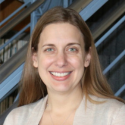 Rebecca Ahrens-Nicklas, MD, PhD
Rebecca Ahrens-Nicklas, MD, PhD
Childrens Hospital of Philadelphia
Dr. Ahrens-Nicklas is an assistant professor of pediatrics who works to understand why patients with inherited biochemical disorders often suffer severe, untreatable neurologic and cardiac symptoms. She strives to elucidate the link between biochemistry and network excitability, in order to drive new approaches to therapy. Dr. Ahrens-Nicklas and colleagues discovered that neuronal networks underlying learning and memory are disrupted very early in CLN3 disease, a progressive neurologic lysosomal storage disorder and the most common cause of pediatric dementia.
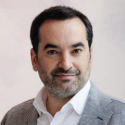 Xavier Anguela, PhD
Xavier Anguela, PhD
Stealth Company
Dr. Anguela is currently chief scientific officer at a company in stealth mode. Previously, he served as deputy chief scientific officer at AskBio Europe. The goal of Dr. Anguela’s research has been to develop gene-based treatments for genetic diseases, with a special emphasis on the translational advancement of AAV investigational therapies for liver-targeted indications.
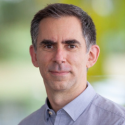 Ben Deverman, PhD
Ben Deverman, PhD
Broad Institute of MIT and Harvard
Dr. Deverman is the director of the vector engineering research group at the Stanley Center for Psychiatric Research at the Broad Institute of MIT and Harvard, where he is also an institute scientist. Dr. Deverman's group applies a variety of approaches including protein engineering, high-throughput in vivo selection and screening methods, and machine learning to develop novel AAV vectors that overcome pressing gene delivery challenges.
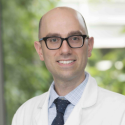 Eric Smith, MD, PhD
Eric Smith, MD, PhD
Dana-Farber Cancer Institute
Dr. Smith is a principal investigator and director of translational research, immune effector cell therapies at Dana-Farber Cancer Institute. The goals of his lab are to design and evaluate novel approaches to advance the field of adoptive cellular therapy, and to rapidly translate these therapies from the lab to treat patients with the greatest need.
George Stamatoyannopoulos Mentorship Award
This award recognizes individuals for their outstanding contributions toward the mentorship, training, education, or support of students, residents, fellows, trainees, or other early career professionals either through formal training programs or through non-traditional means.
 Helen E. Heslop, MD, DSci (Hon)
Helen E. Heslop, MD, DSci (Hon)
Baylor College of Medicine
Dr. Heslop is a professor, director of the Center for Cell and Gene Therapy, and Dan L. Duncan Chair at Baylor College of Medicine. As a physician-scientist, she's engaged in translational research focusing on adoptive immunotherapy with gene-modified effector cells, to improve hemopoietic stem cell transplantation and cancer therapy.
Jerry Mendell Award for Translational Science
Named for the first person to study viral mediated gene therapy for muscular dystrophy in humans, and the principal investigator in the study that led to the FDA approval of Zolgensma to treat SMA, the Jerry Mendell Award for Translational Science recognizes the extensive work required to bring gene and cell therapies to clinical trial.
 Harry L. Malech, MD
Harry L. Malech, MD
National Institutes of Health (NIH)
Dr. Malech is chief of the genetic immunotherapy section (GIS) and deputy chief of the laboratory of clinical immunology and microbiology at the National Institute of Allergy and Infectious Diseases (NIAID). The mission of GIS is the development of gene therapy and hematopoietic stem cell transplantation approaches to the treatment of a variety of inherited primary immune deficiencies.
Sonia Skarlatos Public Service Award
Named for its inaugural co-recipient and tireless gene therapy advocate, the Society’s Sonia Skarlatos Public Service Award recognizes a person or group that has consistently fostered and enhanced the field of gene and cell therapy through governmental agencies, public policy groups, public education, or non-governmental charitable organizations.
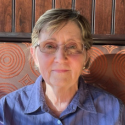 Mercedes Serabian
Mercedes Serabian
FDA Center for Biologics Evaluation and Research (CBER)
Prior to her retirement in 2023 after 30 years at CBER, Mercedes was responsible for the oversight of the pharmacology/toxicology review and policy development for the cell therapy, gene therapy, and tissue-engineered products regulated by CBER. In addition to training and supervising reviewers, Mercedes provided expert pharmacology/toxicology input for multiple FDA guidance documents, helping to formulate CBER policy in various fields, such as xenotransplantation; cancer vaccines; cell therapies for cardiac disease; and more.
Award for Excellence in Advancing Diversity, Equity, and Inclusion
This award recognizes individuals, organizations, or other entities for their outstanding contributions toward the Society’s principles and programs advancing diversity, equity, and inclusion.
.png) Forge Biologics
Forge Biologics
Forge's mission is to enable access to life-changing gene therapies and help bring them from idea into reality. The company partners with innovators in the gene therapy community and brings expertise in gene therapy manufacturing and therapeutics development to the table, helping champion teams that are navigating the long road from the lab bench to the bedside.
Exemplary Service Award
This award recognizes individuals for their outstanding contributions to ASGCT and their commitment to Society’s mission to advance knowledge, education, and awareness of gene and cell therapy.
Barrie J. Carter, PhD
In the 1980s and early 1990s, Dr. Carter served as the chief of the laboratory of molecular and cellular biology in the National Institute of Diabetes and Digestive and Kidney Diseases at the National Institutes of Health. During that time, his group performed seminal work in adeno-associated virus (AAV) type 2 (AAV2) biology, including creating one of the first infectious clones of AAV2 and some of the first packaged AAV2 vectors.
Funded Award Recipients
Career Development Awards
The purpose of Career Development Awards is to support independent transformative pilot studies in gene and cell therapy by ASGCT members, particularly those ideas that would be challenging to fund with normal funding mechanisms.
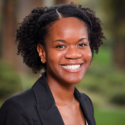 Tierra Bobo, PhD
Tierra Bobo, PhD
Dr. Bobo is an assistant professor in pediatric genetics and metabolism and a researcher with the gene therapy center at the University of North Carolina School of Medicine.
 Sarah Fong, PhD
Sarah Fong, PhD
Dr. Fong is a postdoctoral scholar at the University of California, San Francisco. Her research focuses on characterizing and synthesizing human gene regulatory elements based on ultrasound- and electromagnetic-inducible, cell-type-specific, and evolutionarily unique DNA features using massively parallel reporter assays and artificial intelligence models.
 Taishi Kimura, PhD
Taishi Kimura, PhD
Dr. Kimura is a senior scientist at HDT Bio and specializes in virology, innate immunology, and RNA vaccinology. His work focuses on innate immune responses to viruses and RNA vaccines. Dr. Kimura has contributed to various research projects, including a publication in Molecular Therapy uncovering the mechanistic insight into the safety profile of HDT Bio’s RNA vaccine platform.
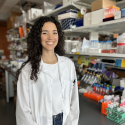 Carla Belmonte Mateos, PhD
Carla Belmonte Mateos, PhD
Dr. Belmonte Mateos is a biotechnologist specializing in neurodevelopmental biology whose research focuses on understanding the mechanisms underlying brain formation in health and disease. Currently, as a postdoctoral researcher in the laboratory of Mark Zylka, PhD, at the University of North Carolina, she is using CRISPR/Cas9-based genome editing strategies to investigate potential therapies for Angelman Syndrome.
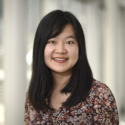 Feiyan Mo, PhD
Feiyan Mo, PhD
Dr. Mo is a postdoctoral fellow in the laboratory of Dr. Ben Stanger at the University of Pennsylvania. Her current research focuses on understanding the immunosuppressive mechanisms in pancreatic cancer, and improving the efficacy of T-cell therapies for this challenging disease.
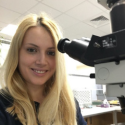 Maria Naskou, PhD, DVM
Maria Naskou, PhD, DVM
Dr. Naskou is an assistant professor of clinical pathology at Auburn University's College of Veterinary Medicine. Dr. Naskou’s research activities are focused on the investigation of platelet and stem cell based therapeutic approaches for the treatment of inflammatory and immune mediated conditions.
 Jia Nong, PhD
Jia Nong, PhD
Dr. Nong is a research associate in the department of systems pharmacology and translational therapeutics at the University of Pennsylvania and co-founder of NanoMuse LLC, a biotechnology company developing targeted nanomedicine technologies for brain disorders. Her research focuses on developing next-generation nucleic acid delivery systems, particularly innovative lipid nanoparticle technologies for gene therapy applications.
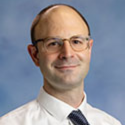 Michael Triebwasser, MD, PhD
Michael Triebwasser, MD, PhD
Dr. Triebwasser is a clinical instructor at the University of Michigan, and works with Dr. Joerg Lahann to study new, non-viral methods for gene transfer and gene editing of hematopoietic stem cells. His goal is to identify more effective and less toxic non-viral delivery methods that may be effective for in vivo gene therapy.
Underrepresented Populations Fellowships
ASGCT will award up to two $100,000 awards to U.S. citizens who are postdoctoral or early-career member-researchers from groups that are underrepresented in the scientific workforce.
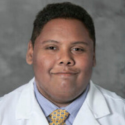 Stephen Persaud, MD, PhD
Stephen Persaud, MD, PhD
Dr. Persaud is an instructor in the department of pathology and immunology at Washington University of Medicine in St. Louis. He aims to develop minimally toxic, immunotherapeutic conditioning strategies which enable the therapeutic benefits of hematopoietic stem cell transplantation (HSCT) with minimal injury to the recipient.
 Christina Termini, PhD
Christina Termini, PhD
Dr. Termini is an assistant professor in the translational science and therapeutics division and the human biology division at Fred Hutch Cancer Center. She is dedicated to building an inclusive and supportive community that will foster the scientific and career development of researchers from all walks of life.